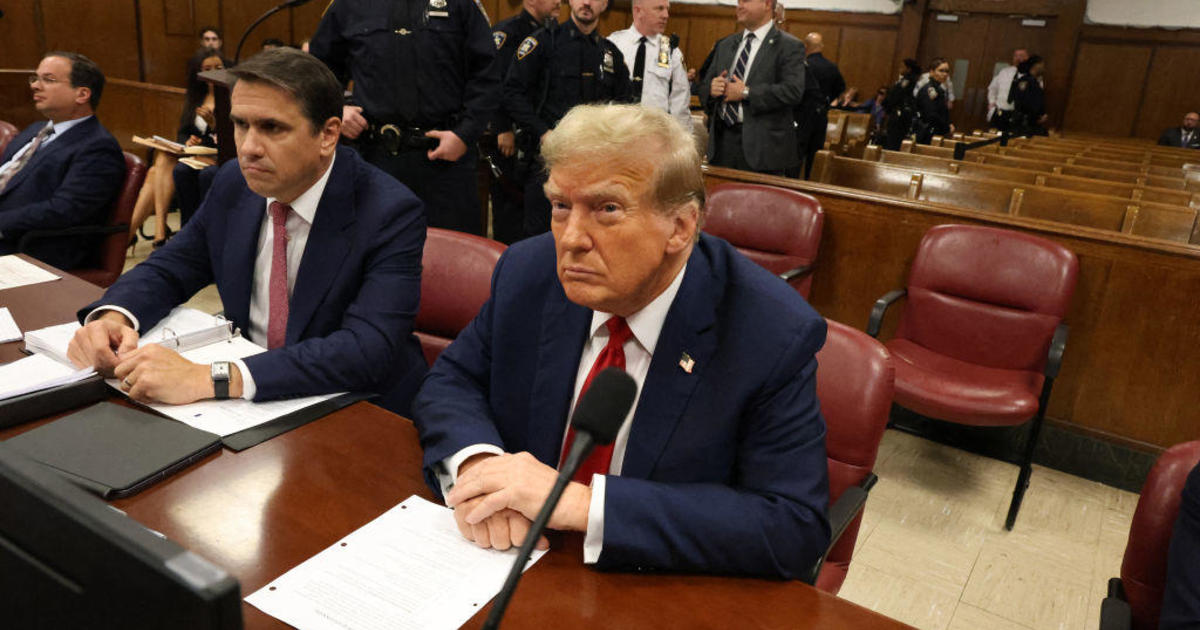Bernie Sanders goes to Canada to make a point about drug prices
Detroit — Just 1 3/4 of a mile separates the U.S. and Canadian terminals on either end of the Ambassador Bridge. But in Canada, a vial of insulin costs around $30.
In America, the price is ten times that.
Bernie Sanders made the crossing from Detroit to Windsor Sunday. With him were thirteen American diabetics, all looking to purchase insulin more cheaply than it can be had in the U.S. They spoke to the senator and a crowd outside the pharmacy about their struggles to afford the hormone.
"What's happening in America is a travesty," said Quinn Nystrom, a Type I diabetic. "We people with diabetes know that we are a fish out of water without insulin. Insulin is our oxygen; it is not an optional medication for any of us […] '/these companies have held us hostage."
Patients with Type I diabetes are not capable of producing insulin, which converts sugar to energy. For most people, the hormone insulin processes glucose (sugar) from what we eat to power the body; a deficiency can lead to nerve and organ damage – even death. Patients take doses multiple times a day.
According to a January study published by the American Diabetes Association, the price of insulin in the US increased by more than 15 percent between 2012 and 2016.
Kathy Sego, whose son, Hunter, suffers from Type I diabetes, addressed the crowd gathered outside the pharmacy. In an emotional testimony, she spoke about the financial stress her family feels to keep her son alive.
"[My son] said, "Mom, something's really wrong. Can you please call the pharmacy because I think our insurance isn't right." And I said, "What's wrong honey?", and he said, "Our insulin-- my insulin's almost costing $1,500 dollars." And I said, "Oh, that's right. That's how much we pay a month."
Sego spoke to nearly 100 Canadians gathered outside the shop. The inside of Ye Olde Walkerville Pharmacy in Windsor, Ontario looked no different from any corner store in America.
Except for the price tags.
"Today, actually, we got 24 vials, 25 vials," said Sego. "It was $1,000 that I paid. We still save $10,000."
Sego said the $1000 gives her son six months of insulin, while $1,000 in the U.S. wouldn't get him through a month.
Sanders is touting a three-pronged strategy to lower prices. First, he promises to appoint an attorney general who would break up the largest pharmaceutical companies. In the case of insulin, three companies – Eli Lilly, Novo Nordisk, and Sanofi – sell the hormone in the US.
Next, Sanders says he would pass his signature "Medicare for All" legislation. If he is able to do this, there would be cap on prescription drug spending, meaning that no one would pay more than $200 on medications per year.
Finally, he would compare U.S. drug prices to other countries and have the Food and Drug Administration negotiate costs with pharmaceutical companies. Sanders believes this process would cut overhead in half.
Medicare for All, Sanders' signature policy, long precedes either of his presidential campaigns. In 1999, as a congressman, he accompanied breast cancer patients traveling from Vermont to Canada for less expensive drugs.
In Windsor, Sanders said the disparity exists because of the "collusion, corruption and greed" of insurance and drug companies.
"Over last 20 years, the pharmaceutical industry has spent hundreds of millions of dollars on campaign contributions. They buy and sell politicians – Republicans and Democrats. In the last 20 years, they have spent billions of dollars on lobbying Congress to make sure they can continue to charge the America people any price they want."
The senator's skepticism for the establishment came across. As other diabetes patients and mothers took the mic, some matched his contempt. Others seemed emotionally drained.
Desralinn Cole, who came from Minnesota for insulin, broke into tears outside the pharmacy. Cole told CBS News that the financial burden of prescription costs keep her from contributing to society and the economy.
"Even with insurance [the cost of prescriptions] is still a burden," she said. "People say you should save three, four months' salary in case something happens – that'll never happen for me."
She said it was encouraging that Sanders went along for the trip. Cole said he seemed invested in her struggle. Still, she did not say if the trip inspired her to support his presidential candidacy.



